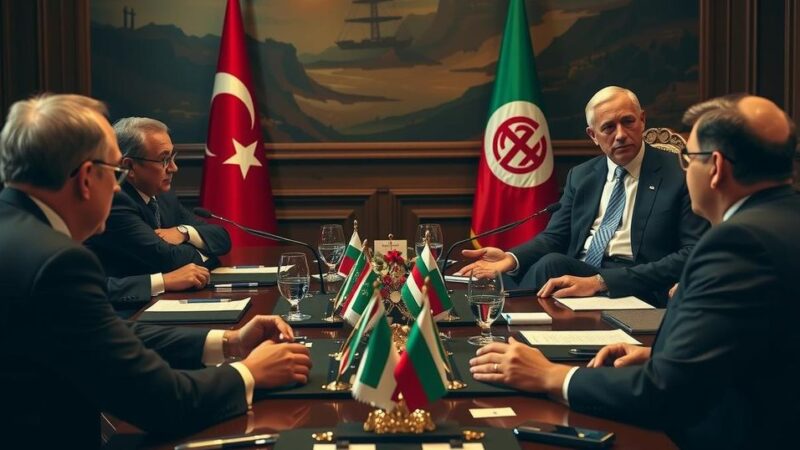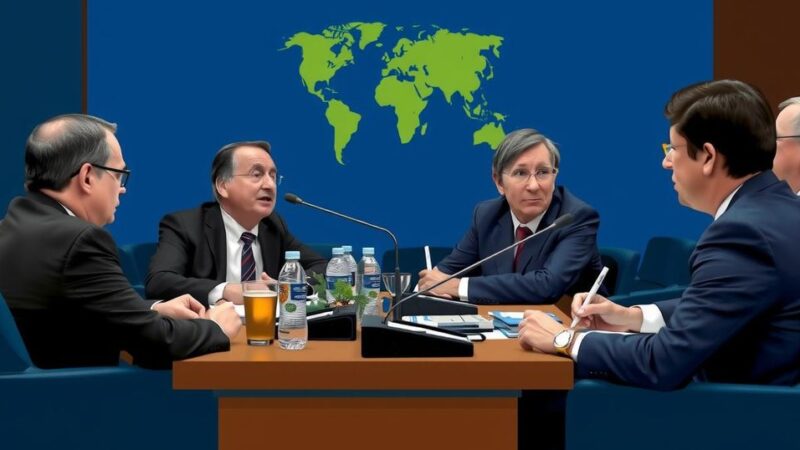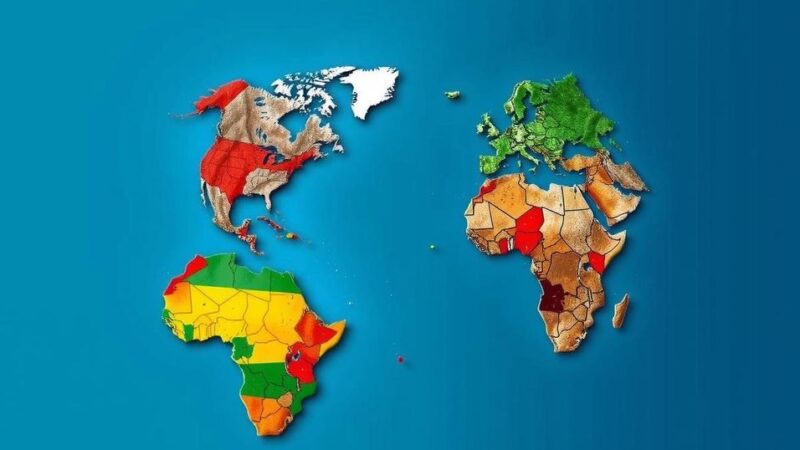Eritrea, Egypt, and Somalia have convened in Asmara to strengthen ties against Ethiopia amid rising tensions over territorial and resource disputes. The meeting underscored a collective commitment to enhance Somali military capabilities, reflecting a growing alliance that raises concerns of potential conflict with Ethiopia, which seeks maritime access and has faced criticism from Somalia.
The leaders of Eritrea, Egypt, and Somalia convened in Asmara, the capital of Eritrea, to strengthen their collaboration against Ethiopia, with which each nation shares a contentious relationship. An official statement issued following the summit emphasized the importance of respecting national sovereignty and territorial integrity, potentially alluding to Ethiopia’s aspirations for maritime access, although the country itself was not explicitly mentioned. Tensions culminated in heightened diplomatic interactions between Somalia and the other two nations, particularly following a dispute that has pushed Somalia closer to Egypt and Eritrea, both of which harbor long-running grievances against Ethiopia. Experts, including Hassan Khannenje of the Horn International Institute for Strategic Studies, suggest this alliance is primarily focused on exerting pressure on Ethiopia. Post-summit imagery showcased Eritrean President Isaias Afwerki alongside Egyptian President Abdul Fattah al-Sisi and Somali President Hassan Sheikh Mohamud, who affirmed their commitment to strengthen Somali institutions and bolster the Somali National Federal Army in its counter-terrorism efforts. Notably, this summit marked President Sisi’s inaugural visit to Eritrea, whereas President Mohamud had previously visited three times within the year. Historically, Ethiopia has supported Somalia in combating the al-Qaeda affiliate al-Shabab, but Somalia’s discontent has grown following Ethiopia’s agreement earlier this year with the self-declared republic of Somaliland regarding a coastal leasing arrangement, which Somalia views as an infringement upon its territory. Additionally, Ethiopia and Egypt have been embroiled in a protracted conflict over Ethiopia’s construction of a significant dam on the Nile River, which Egypt perceives as a potential threat to its vital water supply. Recent developments included an Egyptian military ship delivering substantial arms supplies to Somalia, following the arrival of two Egyptian planes in the Somali capital earlier in the year. Although a peace agreement was established in 2018 between Ethiopia and Eritrea, following years of brutal conflict, relations have since deteriorated, particularly after the cessation of the civil war in Ethiopia’s northern Tigray region, with Ethiopia expressing an interest in securing access to the Red Sea.
The geopolitical landscape of the Horn of Africa is shaped by historical rivalries and territorial disputes between various nations. Ethiopia’s relationships with Eritrea, Egypt, and Somalia are particularly strained due to conflicting national interests. Ethiopia’s aspirations for port access have been a point of tension, especially after a peace agreement with Eritrea that seemed promising at first in 2018. However, subsequent conflicts, particularly the Tigray civil war, have rekindled animosities among these nations, especially as Ethiopia seeks to solidify its economic and strategic position in the region. Egypt’s concerns over the impact of Ethiopian infrastructure projects on the Nile further complicate matters, while Somalia’s frustration over Ethiopia’s dealings with Somaliland illustrates the complexity of alliances in this volatile region.
In conclusion, the summit held in Asmara among the leaders of Eritrea, Egypt, and Somalia represents a pivotal moment in the shifting alliances within the Horn of Africa. With Ethiopia’s aspirations for a port and ongoing tensions related to water resources and territorial claims, this newly formed axis signals a potential escalation in regional rivalries. The implications of this alliance could lead to increased military support for Somalia and further strain relations with Ethiopia, thereby emphasizing the need for diplomatic engagement to mitigate impending conflicts.
Original Source: www.bbc.com






